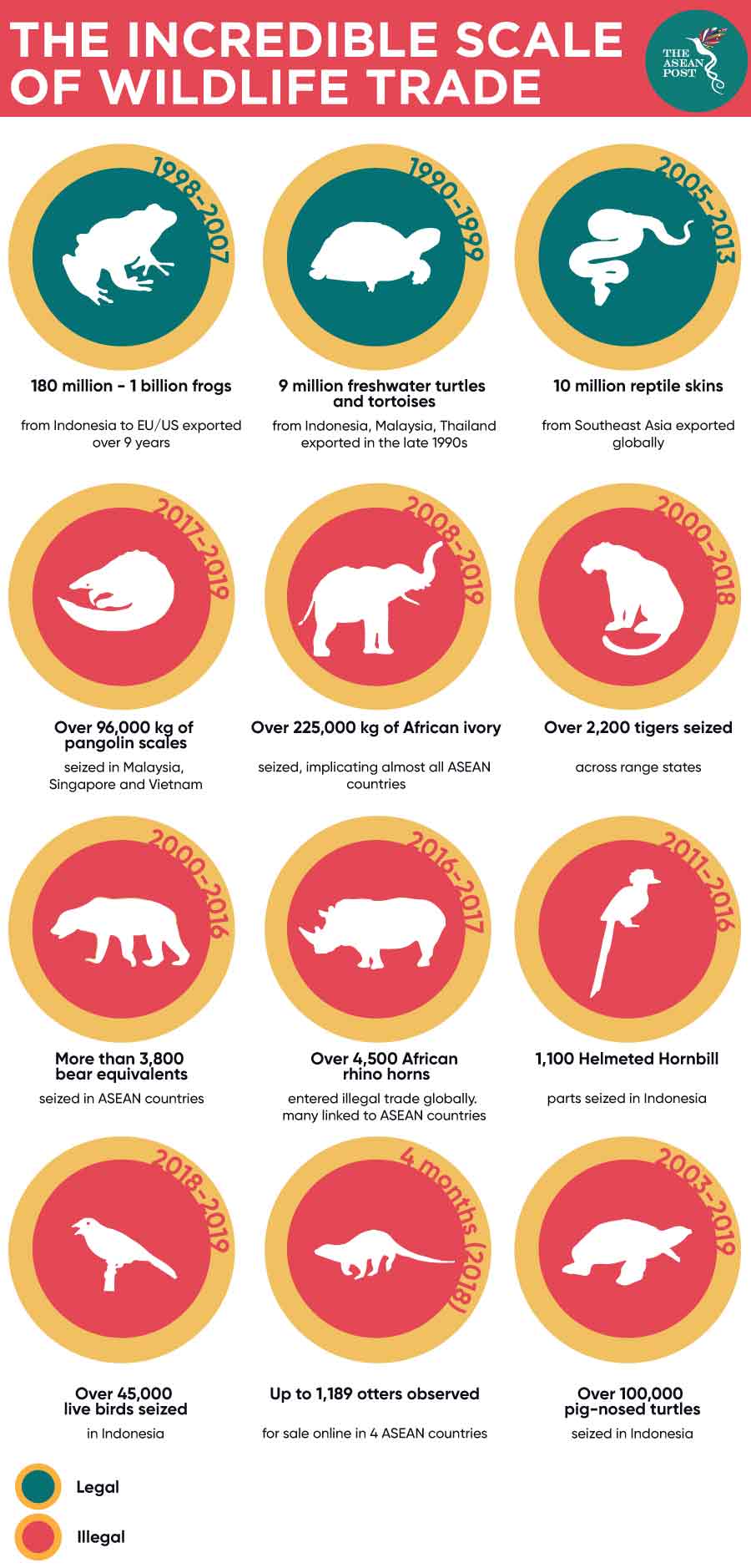Tradition and Culture -- Cause and Effect
"Hard-core believers in 'jinbu' seem to buy into the notion: 'Like-shapes eaten strengthen like-shapes', with the word 'shapes' sometimes referring to human organs and their functions. Adherents count as favourites a long list of exotic foods -- whose methods of procurement or preparation can be outright cruel, with some simply too revolting to describe here."
"I have seen snakes and the penises of bulls or horses -- great for men, the theory goes -- on offer at restaurants in many cities in southern China. Bats, which are thought to be the original source of both the current coronavirus and the SARS virus, are said to be good for restoring eyesight -- especially the animals' granular feces, called 'sands of nocturnal shine'."
"Gallbladders and bile harvested from live bears are good for treating jaundice; tiger bone is for erections."
Yizheng Lian, The New York Times
 |
| A security guard stands outside the Huanan Seafood Wholesale Market where the coronavirus was detected in Wuhan on January 24. |
It was initially called Wuhan Virus, Chinese Virus, Novel Coronavirus, and now it is COVID-19, named so by the World Health Organization, sensitive to Beijing's bristling outrage that a virus should be identified with China. WHO empathetically sought to discourage giving emerging diseases the names of locations where they emanated from, as unfair, to avoid "unintended negative impacts by stigmatizing certain communities". So,what has finally been declared a 'global pandemic' is CO(corona)VI(virus)D(disease)-19(2019.
On the other hand, realistically, the zoonotic that is the COVID-19 virus has a cultural, distinctly Chinese origin and there is little that soft-peddling a name can do to change that reality. China's infamous sensitivity to be linked to anything deleterious, threatening, leaving a bad odour to its name has led it repeatedly to downplay and ignore all such events. Its leaders have a tendency to hide dangerous events and it was no different this time, when doctors who detected something wrong arising, sought to alert their counterparts.
 |
| Picture taken in May 2003 shows a policeman watching over a civet cat captured in the wild by a farmer in Wuhan, central China's Hubei province. |
Warnings were issued by Chinese authorities, threats that the targets were well aware might imperil them should they persist in warning the wider public of an emerging danger. Somehow, the Chinese public sooner or later discovers the perfidy of their government and expresses its outrage at threat of danger to itself. As occurred this time when one of the physicians who warned his colleagues of a strange new pneumonia, was threatened by authorities, himself contracted the virus, and died of it.
And then there is the issue of Chinese cultural preferences in cuisine and pharmaceuticals; its use of exotic and rare plant and animal species for their supposed powers of healing. A culture that is doing its part in reducing the numbers and species of wild animals and plants to the detriment of risking species' survival. "Jinbu" in Chinese food culture describes the use of food to cure a disease, part of a holistic theory holding that disease and illness results when the body is depleted of blood and energy.
 |
| A vendor sells three peacocks at a wildlife animals market in Guangzhou |
Jinbu for men relates to a mystical exhausted energy that can be rectified and virility restored along with sexual prowess; for women replacing blood to improve beauty and fertility, and in those interests rare plants and animals are thought to replenish 'blood' and 'energy', all the more so when wild animals and plants are eaten fresh or raw. Winter is the season when the body cries out for more "jinbu" foods.
 |
The palm civet, a small, wild quadruped is suspected of having been the source of the SARS virus in humans; stewed with snake meat, it is relied upon as a cure for insomnia. The ordinary population feels that dog meat, preferentially a dog that has been chased before slaughter to ensure more "jinbu" benefits accrue from eating an animal whose blood and energy has been exercised to high mode, suffices. Animals slaughtered before serving are believed to be more "jinbu" potent.
And this is where the wet markets comes in, where live, wild exotic animals are obtainable; sold live as more potent "jinbu" sources before they end up on the dinner table. Unbeknownst to the diner, their potency comes strengthened with the presence of viruses which are passed from animal to human on occasion. The Chinese culture is deeply permeated with the belief that exotic wildlife translate to healthful foods.

Labels: China, COVID-19, Cuisine, Culture, Pharmacology, Traditions

<< Home